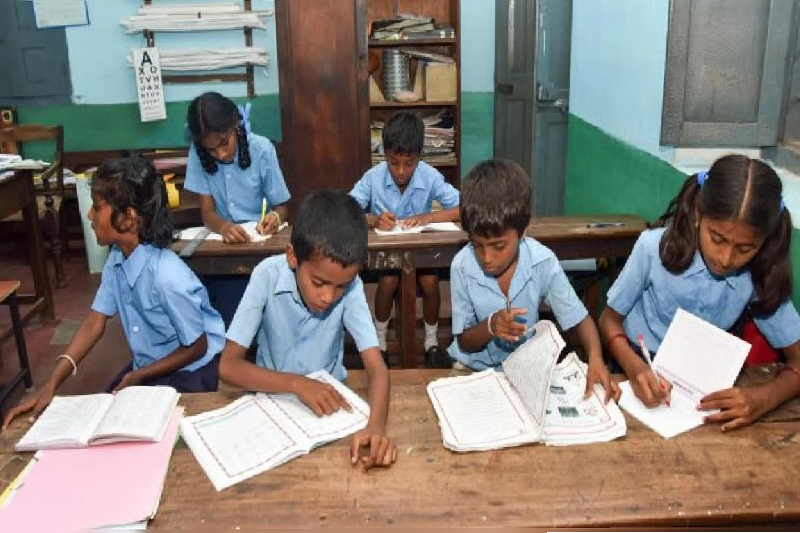
Faculty Shortage Crisis Hits Karnataka Government Colleges: Students Face Academic Disruptions
As the academic year advances, a major crisis has gripped government colleges across Karnataka. Students in nearly 430 government first-grade colleges are reeling under uncertainty as a severe shortage of guest faculty has left many classrooms without teachers. With exams looming in November, the delay in starting full-fledged classes has sparked panic among students and protests across the state.
A Crisis Years in the Making
The shortage is not a sudden development but a result of long-standing policy and legal complications. In 2018, the University Grants Commission (UGC) mandated that only candidates with NET, SET, SLET, or PhD qualifications could be appointed as guest faculty. Following this directive, the Karnataka government removed around 5,000 lecturers who were due for guest faculty appointments. Many of these lecturers had decades of teaching experience and challenged the decision in court.
Responding to the petitions, the Karnataka High Court directed the Department of Collegiate Education to strictly comply with UGC’s minimum qualification rules for appointing guest lecturers. However, as the related cases remain sub judice, the government finds itself unable to move forward with fresh appointments, leaving colleges in a fix.
The Scale of the Shortage
Government first-grade colleges in Karnataka require around 11,000 lecturers to function smoothly. Last year, 9,000 guest lecturers were appointed, helping colleges sustain academic schedules. This year, however, the crisis has deepened due to additional changes in student intake. The maximum strength per division was reduced from 100 to 75, creating the need for more teaching posts. With appointments stalled, institutions that heavily depend on guest faculty are struggling to manage classes.
The shortage is particularly acute in professional courses like BBA and BCA, which are almost entirely dependent on guest lecturers. In contrast, some courses like BA and BCom have managed to conduct classes partially with permanent staff and language faculty.
Students Left in the Lurch
The brunt of the crisis is being borne by students. Accounts from various colleges paint a grim picture of disrupted academics and growing anxiety.
“In our college, BA classes are being held daily and BCom classes to some extent. But BBA and BCA classes are not as they are completely dependent on guest faculty. Only language teachers are taking classes for those courses,” said a student from a Peenya-based college.
Another student described the daily struggle: “Students come to college, but many of them leave by lunch. There are no classes in the afternoon because there are no teachers to take these classes. Things were going on like this when the notification to pay exam fees was issued. That is when panic struck. We have exams in November, and classes are yet to start properly.”
This uncertainty has led to severe distress, particularly among first-year students who come with high expectations of learning but return home disappointed. Second- and third-year students, meanwhile, are increasingly turning towards short-term employment to avoid wasting time.
Social and Economic Impact
The disruption is especially harsh on students from economically disadvantaged backgrounds. Many travel 12 to 20 kilometers every day, only to find classes canceled due to the absence of teachers. For families already under financial stress, the wasted time, energy, and resources further compound the challenges of accessing higher education.
Kalyana Kumar, district secretary of the All India Democratic Students’ Organisation (AIDSO), highlighted the gravity of the issue: “First-year students come to college in large numbers every day, hoping for classes to be held. In contrast, a significant number of second- and third-year students have left classes and started short-term employment. Many students from poor and middle-class families travel 12 to 20 km every day, only to return disappointed since there are no classes.”
Student Protests and Demands
The growing frustration has spilled over into protests across the state. The Akhil Bharatiya Vidyarthi Parishad (ABVP) staged demonstrations at 15 colleges, demanding immediate government action to resolve the faculty shortage. Similarly, the AIDSO has called for a voluntary boycott of classes to press for a resolution.
The student bodies are demanding that the government expedite the process of appointments or find alternative measures to ensure classes resume without further delay.
Government’s Position
Higher Education Minister M.C. Sudhakar, along with Law Minister H.K. Patil, held discussions on the matter on Friday. However, the meeting ended without resolution. Speaking after the discussion, Sudhakar said, “Since some of the related cases are still sub judice, we wanted to take the department’s opinion on how to take this forward. However, it was inconclusive, and we will meet again Saturday. We are thinking of extending the term as syllabus is yet to be completed in many colleges.”
The statement underscores the government’s dilemma: balancing compliance with UGC’s regulations and court directions while addressing the immediate academic needs of thousands of students.
The Road Ahead
As the stalemate continues, the academic future of students hangs in the balance. Unless the government finds a workable interim solution, the disruptions may lead to long-term setbacks, including incomplete syllabi, poor exam performance, and even higher dropout rates.
The crisis has highlighted not just the pressing issue of guest faculty shortages but also the fragility of Karnataka’s higher education system, which relies heavily on temporary staff. Long-term reforms to strengthen permanent faculty recruitment and reduce dependence on guest lecturers may be the only sustainable solution to prevent such crises in the future.
For now, students and families across the state wait anxiously, hoping that the government will act swiftly to safeguard their academic year.



